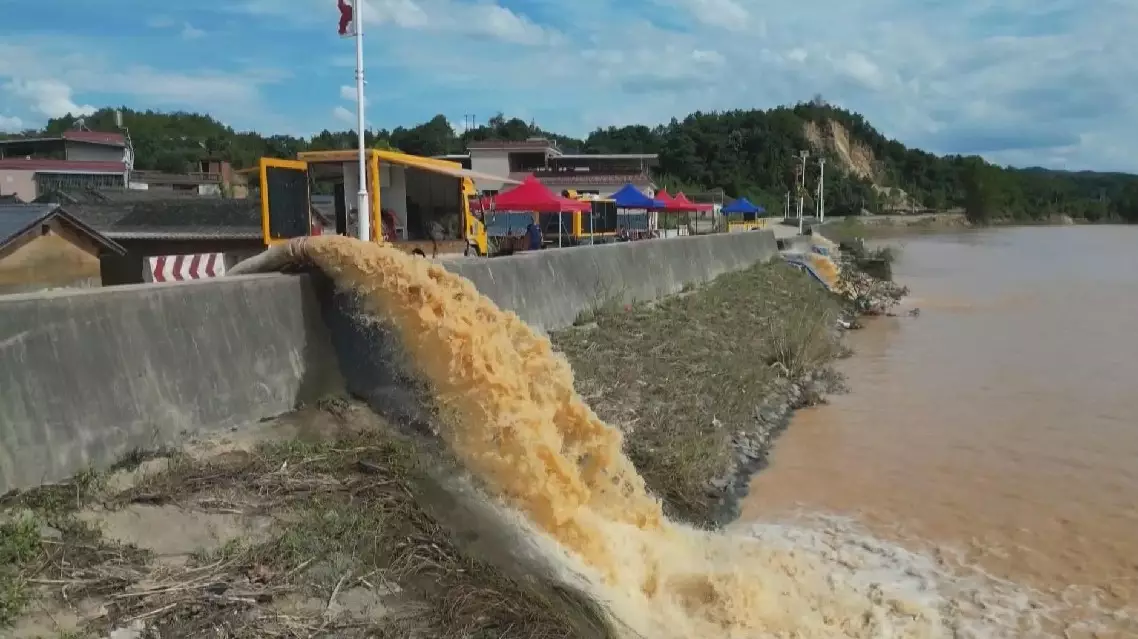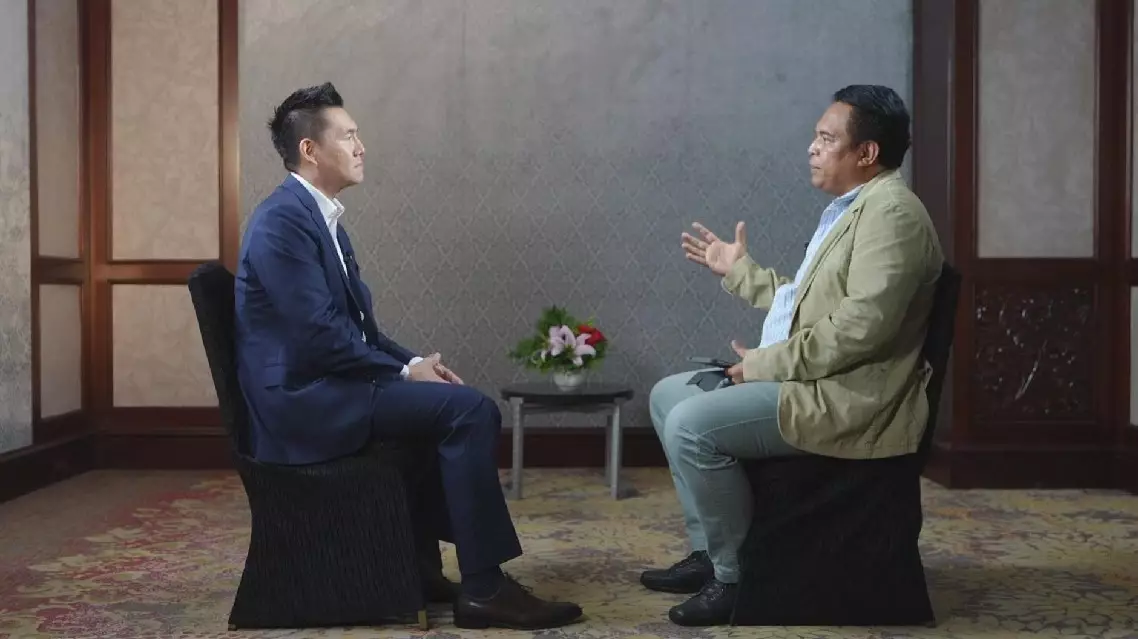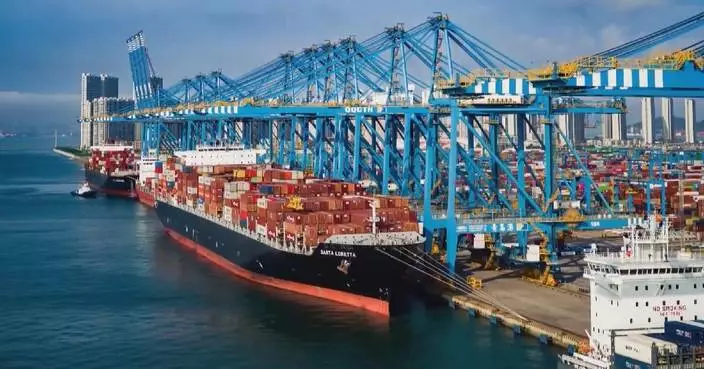Heavy downpours have pelted large swathes of southern China over the past few weeks, prompting local authorities to beef up flood control and rescue measures to mitigate the disaster.
Many parts of southwest China's Chongqing witnessed rainstorms since Thursday night, resulting in water-logged roads in urban areas. An army of workers were dispatched promptly to clear the drainage network overnight.
Meanwhile, water levels of several regional rivers have exceeded warning thresholds, leading to the suspension of train services in the affected sections.
Heavy rainfall also pounded multiple areas in east China's Jiangsu Province on Friday. Cities along the Huaihe River are closely monitoring water levels and taking strict precautions against possible flood disasters.
Furthermore, incessant rain triggered landslides and mudslides in Wuping County of east China's Fujian Province. A total of 58 temporary resettlement sites have been set up across the county to house residents evacuated from unsafe areas.
Through days of intensive efforts, 64 of the 67 damaged roads have reopened to traffic, and electricity supply has been restored to over 95 percent of households.
The flood-hit Huangshan City in central China's Anhui Province has temporarily relocated more than 12,000 people as of Friday morning, with authorities providing health-care services and hot meals at resettlement sites.
In Baidu Town of Meizhou City, south China's Guangdong Province, some low-lying villages have been inundated by flood water from swollen rivers and large mobile pumps were deployed on Friday to drain flooded buildings.
Guilin, capital of south China's Guangxi Zhuang Autonomous Region, saw its worst flooding since 1998 earlier this week. While the floods are receding, city authorities are pushing forward with cleanup and disinfection efforts to get people's lives back to normalcy.
The State Flood Control and Drought Relief Headquarters on Friday activated a Level-IV emergency response to flooding in Jiangsu. The national commission for disaster prevention, reduction and relief has issued a Level-IV emergency response for disaster relief in Anhui on Thursday and dispatched work teams to the affected areas.
An additional 30,000 pieces of relief supplies including tents, folding beds, and summer quilts have been sent to Guangdong by central authorities.
China has a four-tier flood control emergency response system, with Level I being the most severe response.

China ramps up flood rescue, relief efforts as rainstorms lash southern cities









